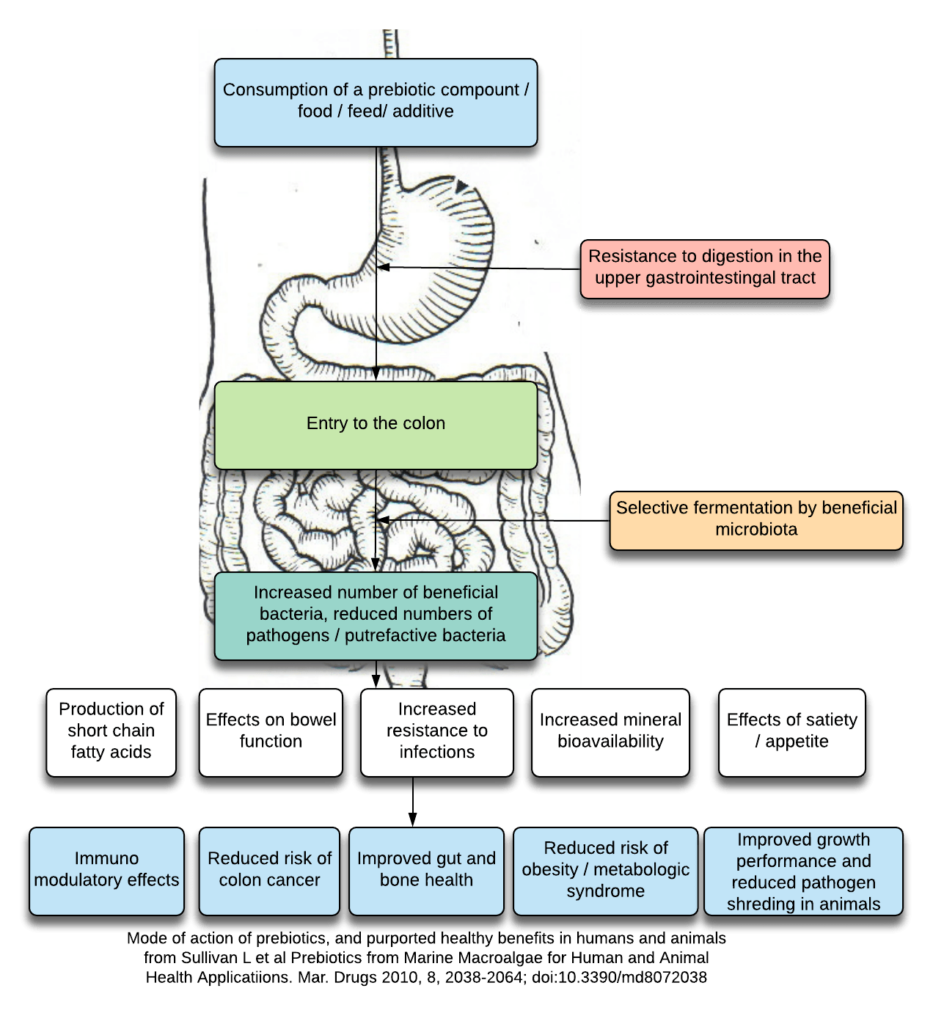Some people find they are allergic to different food products, such as nuts or seafood. Some to various fruit. And there is a growing body of evidence that humans live in a delicate balance with their microbiome. For almost all, health benefits from eating seaweed outweigh any negative effects. With any change in diet, you may have some temporary changes until your microbiome adjusts to the change in diet. We have found even people with very sensitive tummies eat seaweed without issues.
What We Now Recommend
Start slow. Eating any new food may cause minor GI (gastro-intestinal) effects, whether a new food or a big change in diet. Seaweed is high fibre so think of it as one of your daily serves of vegetables.
- Take 2 capsules per day in the first week, and then increase to 4 per day. If you have a very sensitive gut, start with 1 capsule per day.
- Our microbiome needs time to adjust, in the same way, if you started having lots of fibre. A Japanese paper proposed the bacteria in our gut are not as used to seaweed as they used to be because less seaweed is eaten.
- Make sure you eat with food. Unless you like seaweed burps!
- If your diet is 2 minute noodles, or rice and chicken, you will be not be consuming the recommended 20 to 30 grams of fibre per day! The 2.5 gram of seaweed will not be 15% of your RDA, but much higher!
- If you current eat a high fibre diet, where it is recommended 5 to 7 serves of vegetables, you will unlikely have any GI issues.
Customer Positive Outcomes
This is the feedback from current customers.
- 35% of customers experience less pain after exercise
- 30% more endurance after exercising
- 25% noticed a reduction in pain levels (osteoarthritis)
- 50% had stronger nails
- 48% improvement in bowel movements
- 20% improvement in blood pressure
- 40% more energy
- 30% improvement in sleep
- 20% increase in hair growth
- Improvement in dysmenorrhea
Negative Outcomes
About 7% of our customers have a few issues. Most who persist over the first few days find these effects are temporary as their system adjusts to a different diet.
- Minor bloating. Start with 1 capsule and work up. Give yourself time to adjust to a new food.
- A few complain their farts are smelly. The change in gut microbiome settles down within a few days.
- If you take a course of antibiotics, your stomach microbiome will change as the antibiotics kill off bacteria. Keep eating the seaweed but reduce the quantity.
- Some find the capsules hard to swallow. Try the chocolate or the sourdough bread recipe using the powder.
- If you do experience ongoing symptoms then firstly reduce the quantity down to 1 per day and then slowly increase.
- Or simply stop eating Pacific Sea moss.
Seafood Allergy
The rate of “seafood” allergy is about 2% of the population. Crustacea (such as shrimp, crab and lobster) cause most reactions, often severe, but some have an allergy to molluscs (clams, mussels, oysters and scallops).
For a more detailed response – check out the page on allergies
Seaweed is grown in the sea, naturally, and as soon as we plant it on ropes, sea creatures come and live in it. That’s a fantastic part. Little fish come in for protection, then they get their predators and even huge fish like whale sharks. When we harvest seaweed we do check and remove any animals and other seaweed species. It is washed thoroughly to remove other things that are too small to see and rinsed in clean fresh water before drying. But there could be a tiny mollusc or shrimp – too small to be spotted that has come in. Just like getting a snail or grub in a lettuce/cauliflower. It is natural, vegan, organic but it only takes one in a 1,000 capsules.
There is a warning on the bottle label. Do not risk eating seaweed if you have a known seafood allergy. The risk is very low but the consequences potentially deadly. Some are not aware of their allergies.
References
[1] Teas et al 2009 Could dietary seaweed reverse the metabolic syndrome? Asia Pac J Clin Nutr – ISBN 8035765612 see http://apjcn.nhri.org.tw/server/APJCN/18/2/145.pdf
Teas’ Trial in 2009 Indications
Teas reported from a small study with 30 people that there were only minor adverse side effects noted: soft feces, (2 subjects), increased amount of feces (1 subject), transient discomfort of the stomach after taking seaweed (3 subjects), and sense of fullness (1 person). Two subjects reported positive side effects of participating in the study: the resolution of pre-existing gastritis (1 subject), and the disappearance of chronic headaches (1 subject). Two people complained about taking too many capsules, and one of these subjects withdrew from the study.
We, therefore, expected symptoms to include:
- Bloating
- Increased stools (waste)
- Decreased stools
- Headaches
But more often this is not the case. We now only suggest 2.5g, and introduce over a week or two to minimise bloating. Most find their stools improved.

